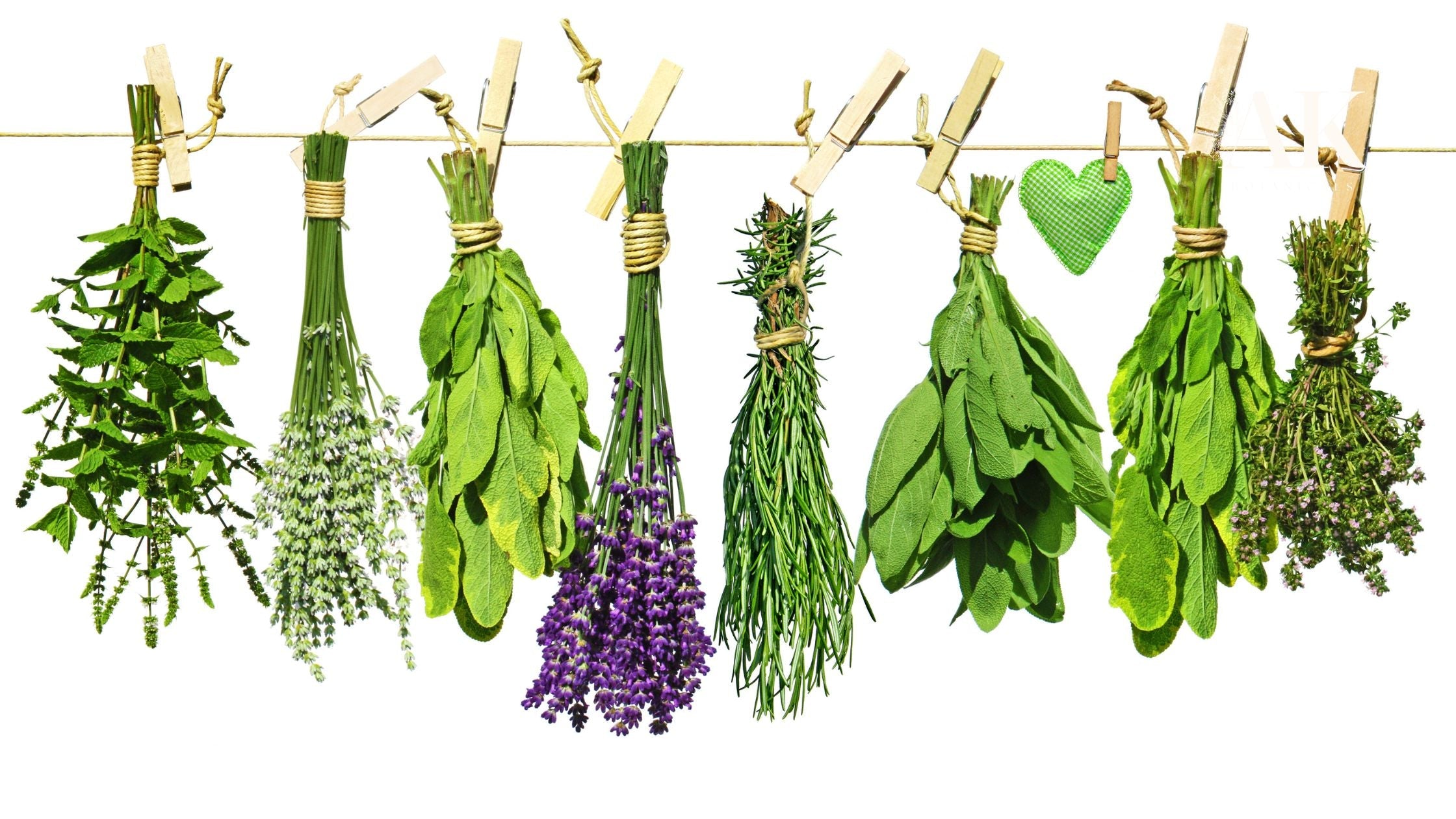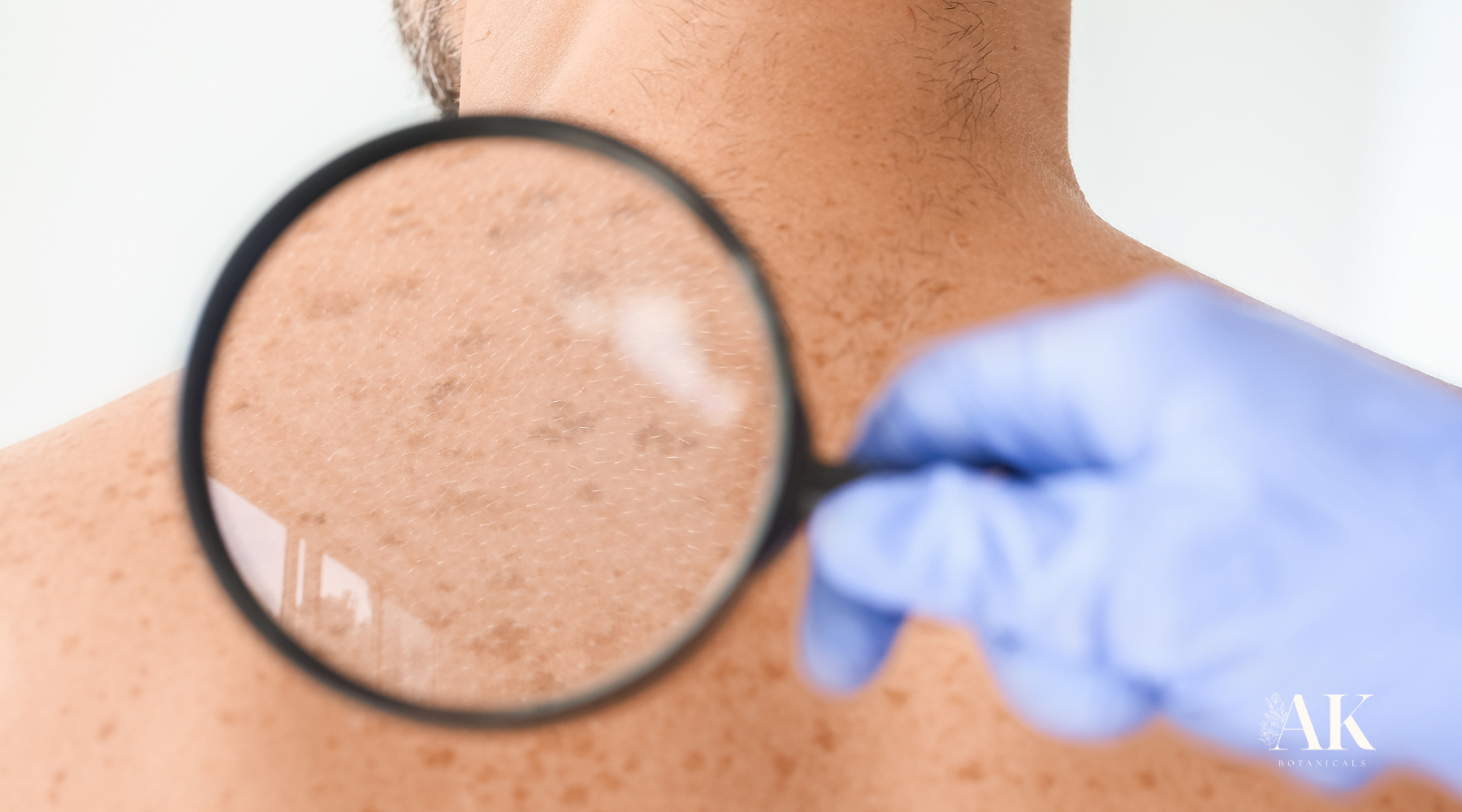
Best Herbs for Actinic Keratosis Treatment
Actinic keratosis (AK) is a common skin condition caused by prolonged sun exposure, leading to rough, scaly patches that can sometimes progress into more serious forms of skin cancer, such as squamous cell carcinoma. This precancerous skin issue can affect various areas exposed to the sun daily, especially the face, ears, neck, and arms. While cryotherapy, diclofenac, imiquimod, and prescription creams remain effective conventional treatments, a growing number of people are turning to natural alternatives rooted in herbal medicine.
Natural Remedies for Actinic Keratosis
Herbal treatments offer a powerful approach to managing actinic keratoses. Certain herbs are known for their anti-inflammatory, antioxidant, and skin-regenerating properties, which can help soothe irritation, repair UV-induced damage, and support healthy cell turnover. Used correctly, these natural treatments may help treat actinic keratosis and reduce the chances of it developing into skin cancer.
Herbal Remedies for Actinic Keratosis
Here are some of the best herbs and plant-based treatments that support skin health and may help treat actinic keratoses:
1. Green Tea Extract (Camellia sinensis)
Green tea is rich in polyphenols like EGCG, which have shown anti-inflammatory and antioxidant activities. Topical use has demonstrated benefits in reducing abnormal cell proliferation related to AK.
"Green tea polyphenols have been shown to modulate biochemical pathways involved in cell proliferation and ultraviolet radiation-induced skin damage." — Journal of the American Academy of Dermatology
2. Milk Thistle (Silybum marianum)
Containing the antioxidant silymarin, milk thistle supports skin repair and may help reduce oxidative stress from UV exposure, which often triggers actinic keratosis.
"Silymarin protects skin cells from UV radiation-induced oxidative stress." — International Journal of Oncology (doi)
3. Turmeric (Curcuma longa)
Curcumin, turmeric’s active compound, is well-documented for its anti-inflammatory effects and potential to inhibit cell mutation, which is key in preventing skin cancer from actinic keratoses.
"Curcumin suppresses tumor cell growth and may prevent and treat skin cancers." — https://pubmed.ncbi.nlm.nih.gov/21493306/
4. Aloe Vera (Aloe barbadensis)
Used for centuries in natural medicine, aloe vera soothes inflammation and may encourage skin regeneration. It’s especially helpful for discomfort caused by keratosis.
"Aloe vera has therapeutic and anti-inflammatory properties useful for treating various skin conditions." — Indian Journal of Dermatology
5. Calendula (Calendula officinalis)
Calendula, especially when used as a calendula infusion, is effective in reducing skin irritation and promoting wound healing. Topical treatments with calendula may support the repair of actinic keratosis lesions.
"Calendula promotes wound healing and reduces inflammation, aiding in actinic keratosis treatment." — MDPI
6. Kanuka Honey (Leptospermum ericoides)
From the New Zealand tree, this lesser-known relative of manuka honey has shown promise in skin healing and anti-inflammatory effects. Some studies indicate its topical application may assist in soothing actinic keratoses.
Integrating Herbal Treatments into Your Routine
Looking into natural ways to manage actinic keratosis? Here are a few thoughtful steps you can consider and explore.
-
Consult a Dermatologist or Doctor: Always talk to a professional before starting any new treatment, especially if you’re already using prescription medicine for skin cancer or other conditions.
-
Do a Patch Test: Herbal treatments are not one-size-fits-all. Patch testing ensures your skin won’t react negatively.
-
Use Sun Protection Daily: While these herbal treatments help, sun exposure is a major trigger for actinic keratosis and basal cell damage. Use natural sunscreen, wear protective clothing, and avoid intense midday rays.
AKti-Clear: A Natural Botanical Formula for Skin Health
For those seeking a more comprehensive treatment, consider incorporating AKti-Clear, a natural formulation made with Natural Active Ingredients: it contains Sanguinaria canadensis (Bloodroot) and Annona muricata (Soursop fruit), which have been used for centuries in traditional medicine for their beneficial properties. Designed to support skin health, AKti-Clear manages Actinic Keratosis and prevents progression toward skin cancer.
Dig Deeper: Research and Resources
To learn more about the science behind these natural treatments, explore databases like PubMed, Google Scholar, and articles published in peer-reviewed journals. Look for references with DOIs for validated research and consider resources from organizations such as the American Academy of Dermatology and Cancer Society.
Adopting a holistic approach to treating actinic keratosis means using natural treatments in combination with expert medical guidance. Herbs like green tea, turmeric, calendula infusion, aloe vera, and kanuka honey offer promising benefits for supporting skin health and may assist in preventing the transition of keratoses into more severe skin cancers, such as squamous cell carcinoma. Remember: healing begins with informed choices, protective habits, and daily skin care.
Note: This article is for informational purposes only and is not a substitute for medical advice. Always consult your doctor or dermatologist before starting a new treatment for actinic keratosis or any skin condition.




